Spelling ъ and ь
A. The use of a separator b.
1. Dividing b spelled:
1) before letters e, yo, yu, i after a prefix ending in a consonant: entry, rise, pre-anniversary, internuclear;
2) before letters e, yo, yu, i in foreign words, in which there is a prefix ending in a consonant (ab-, ad-, diz-, in-, inter-, con-, counter, ob-, sub, trans-), or compound particle pan-: adjutant, injection, conjunctivitis, counter-Jacobin, object, subject, trans-Japanese, pan-European;
3) in compound words, the first part of which is formed by the names of numerals two-, three-, four-: two-tier, four-lingual.
2. Dividing b not spelled:
1) in compound words before letters e, yo, yu, i : children;
2) before vowels uh uh uh : categorical, cloudless, unexamine.
B. The use of dividing b.
Dividing b it is written:
1) before e, yo, i, yu, i inside a word, not after prefixes: career, curious, sparrow, blizzard, monkey, clerk(from the word clerk, i.e. b fundamentally);
2) in some foreign words before about : broth, companion, champignon.
B. The use of ь to indicate the softness of consonants in writing.
1. The letter b is written:
1) at the end of a word after any soft consonant: horse, coal, lantern;
2) after a soft l before any consonant (hard or soft): sick, herring, boy, sawyer;
3) after a soft consonant before a hard consonant: Kuzma, less, fight;
4) between two soft consonants only if, when changing the word, the second consonant becomes hard, and the first remains soft: in request(request), Kuzmich(Kuzma), about the fight(struggle);
5) in numerals ending in -ten, -hundred, after the first root: fifty, five hundred, eighty, eight hundred; in numbers ending in -twenty at the end of a word: fifteen, nineteen, twenty.
2. The letter ь is not written:
1) inside combinations chk, ch, lf, nsch, rsh, rh : river, river, babysit, mason, lamplighter, spoiled;
2) between soft ll : illusion, illumination, illustration.
D. The use of ь to designate grammatical forms.
Note: hissing letters are w, w, w, h .
1. After hissing b is written:
1) in nouns female singular: speech, silence, roar(do not mix with clouds, groves, thousands, since these are forms genitive plural);
2) in imperative mood verbs: assign, cut, eat, assign, cut, eat;
3) in indefinite form verbs: keep, keep, take care, take care;
4) in the 2nd person singular of present and future tense verbs: you carry, you carry, you throw, you rush, you rush, you carry;
5) in adverbs: helplessly, completely. Exceptions: already, married, unbearable;
6) in particles: vysh, bish, only, ish.
2. The use of ь in some other case and verb forms:
1) in instrumental plural of some nouns and numerals: children, people, four, as well as in other cases of the numeral eight: eight, eight and eight;
2) in the indefinite form of verbs: carry - mess around, shave - shave;
3) in the imperative mood: get ready, get ready, get ready. Exceptions: lie down, lie down.
Exercises on the topic "Spelling b and b"
Exercise 1. Rewrite, inserting, where necessary, the missing letters.
1. At that moment, there were p ... yanye cries of the guests.
2. He himself decided Chichikov] to compose fortresses, write and rewrite, so as not to pay anything under ... yachim.
3. She sat down at the pianoforte and played some of his favorite songs.
4. The lackey impersonates their manners, manners.
5. Tall green drill...yang grew up in the place where the yard once was.
6. The upholstery on the chairs of the first rows and on the bars ... of the boxes ... has long faded.
7. The angry river foamed and whipped the granite parapets of the embankment with waves.
8. Sometimes a group came out from ... examining high school students, talking cheerfully about luck or anxiously about the possibility of failure.
9. The cook gave them [the sailors] boiled broth ... meat.
10. In the midst of a large clean area on a high pedestal stood a cast of the mighty figure of David.
11. Here we have one more company ... he is for a picnic.
12. Not far away, behind the trees, an immense azure expanse opened up.
13. At the slightest ... yane in a suit, with torn buttons, this suit should be handed over for repair, cleaning, etc.
14. We already had dinner with my father.
15. We retreated to the north, hiding all the time with strong rearguards.
16. Andrey's letters have become an integral part of my life.
17. Aksinya with ... narrowed her eyes, moved ... with her black eyebrows.
18. The day of the premiere has come, which has been prepared for over six months.
19. We presented a number of demands to Fokin, and above all about raising wages.
Exercise 2. Rewrite, inserting the missing letters where necessary.
1. Several infantry battalions were concentrated in the town.
2. First, field shootings were made, then the work was transferred to the pavilions of the film factory.
4. During the repair of the theater, inter ... tiered ceilings were replaced.
5. The newspaper published an interview with the head of a foreign delegation.
6. New methods of work have made it possible to save a lot of time and money.
7. The active counter...attack of the opponent put the young chess player in a difficult position.
8. The work of the translator was facilitated by the recently published three ... language dictionary.
9. In such a ... southern night ... it was not difficult ... to go astray in unfamiliar places.
10. At night, frosts were not uncommon, and a leaf ... I was on trees ... with ... hedgehogs ... from the cold.
11. For urgent and important documents was used ... feld ... jaeger connection.
12. The peasants repeatedly rebelled, stirrups... get rid... of the burden under... the jugular life in the conditions of serfdom.
13. Taking ... for any work, you need to objectively evaluate ... your capabilities.
14. Old-style banknotes were withdrawn ... from circulation.
15. At dawn human life almost any phenomenon of nature seemed to people super...natural and inexplicable.
16. A chemist made experiments with some four ... elemental compounds.
17. Such theories as Pan...Turkism, Pan...Japanism are based not so much on religious, but on political goals.
18. A giant Soviet jet plane made a trans ... European flight in a few ... hours.
Exercise 3. Rewrite, inserting, where necessary, the missing letters.
1. My request is as follows.
2. The rain was sown all the chalk ... che and chalk ... che.
3. Frost fell on the ground ....
4. You are dressing ... near an open silt ... yuminator, into which you smell April ... freshness ....
5. He did not sit ....
6. He learns ... to ride horses.
7. A short winter ... day began to twilight ... sya.
8. With him all the nannies ... chilis ... .
9. Assistant ... nickname was diligent and sensible.
10. February ... on the seventeenth ... broke into the city with a wind, cold ... and in ... the south.
11. Nyan...ka loved to mess around with children...mi.
12. Linen ... heads turned white in t ... me.
13. I'm afraid ... seriously ... carried away.
14. And there is nothing to marvel at: how does a tree make friends with fire ...?
15. If you want ... - add ... eat ... sya.
16. Early ... on a summer morning, go ... to the forest.
17. Take care of ... tes ... about food: take ... something with you.
18. Do not cry ... those, console ... tes ....
19. Intercede ... for the weak.
20. Throw ... those swear ... sya.
Sources:
- Chapter "Difficulties of Russian spelling and punctuation" in the manual Golub I.B. "Russian language and culture of speech"
- Section "Letters ъ and ь" in the "Russian language manual for applicants to universities" by Rosenthal D.E.
Additionally on Guenon:




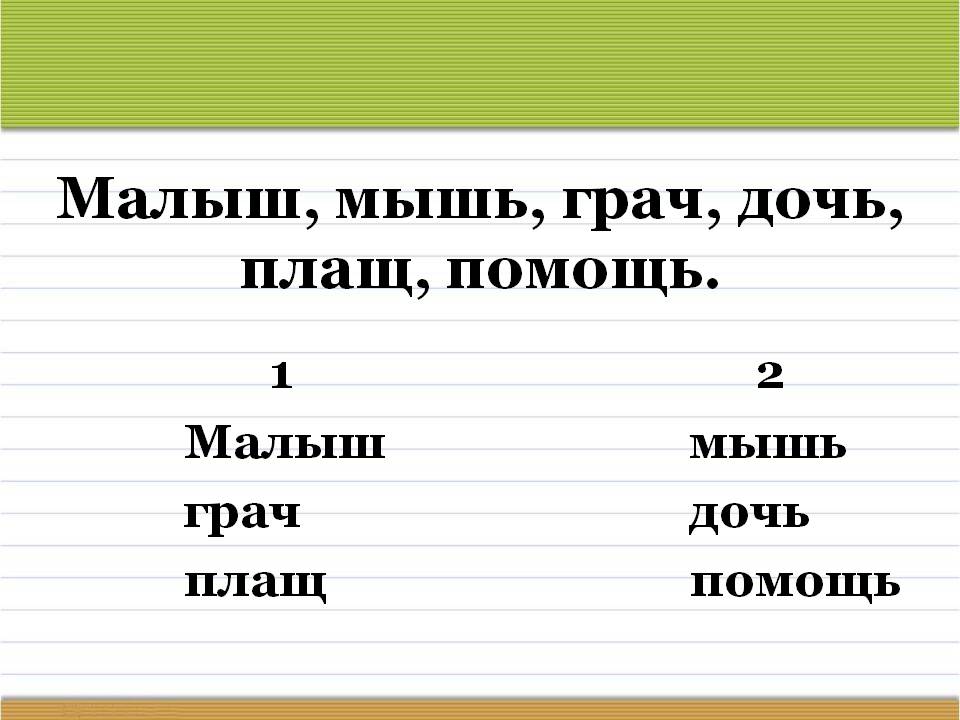
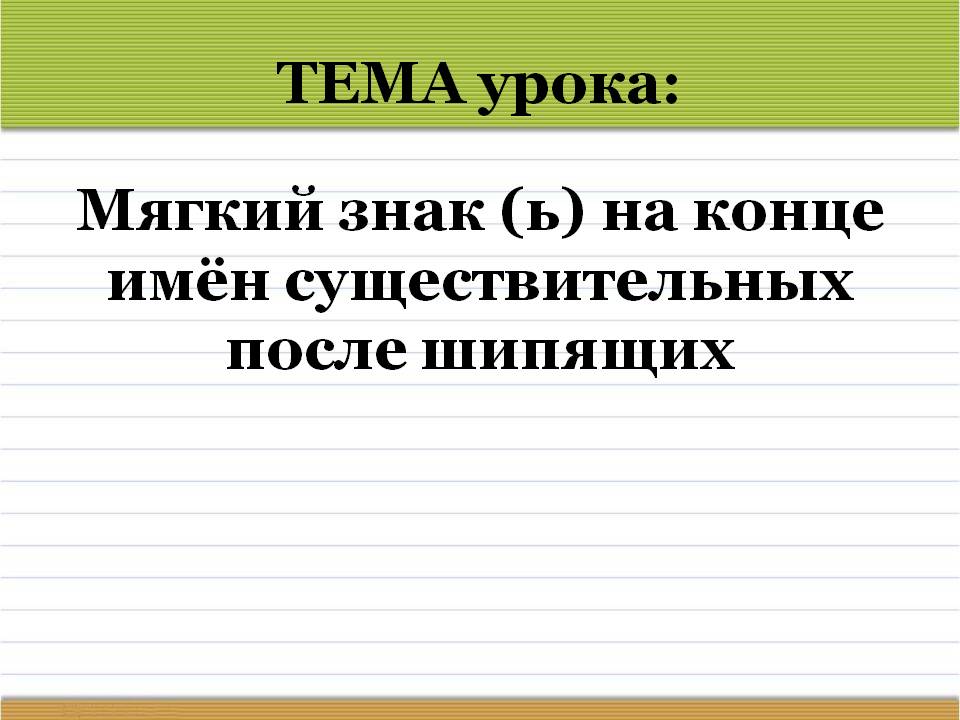
![]()
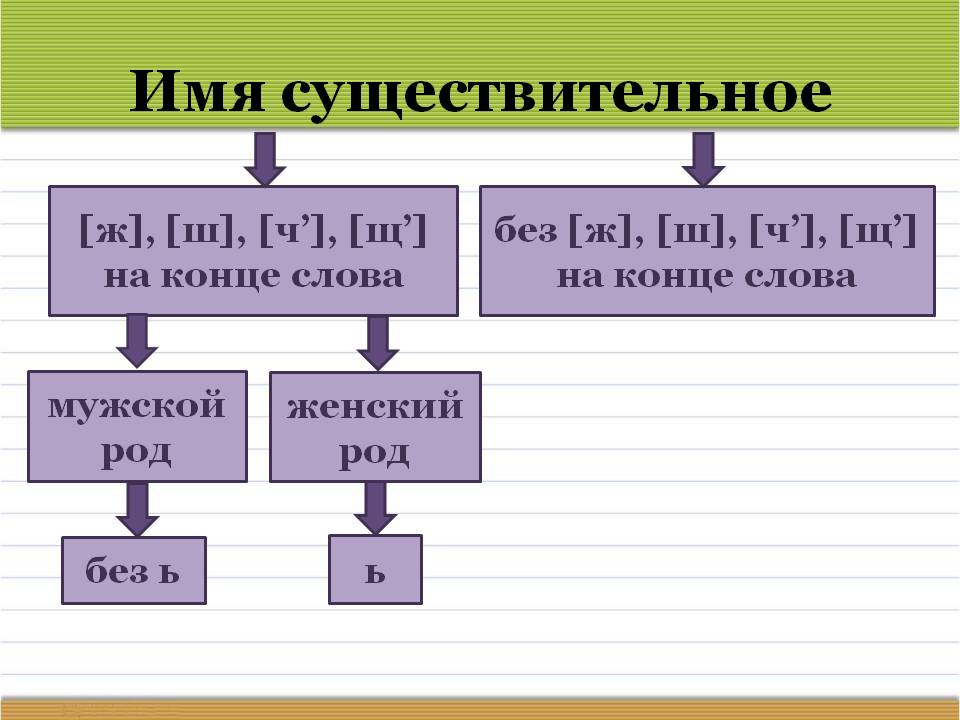
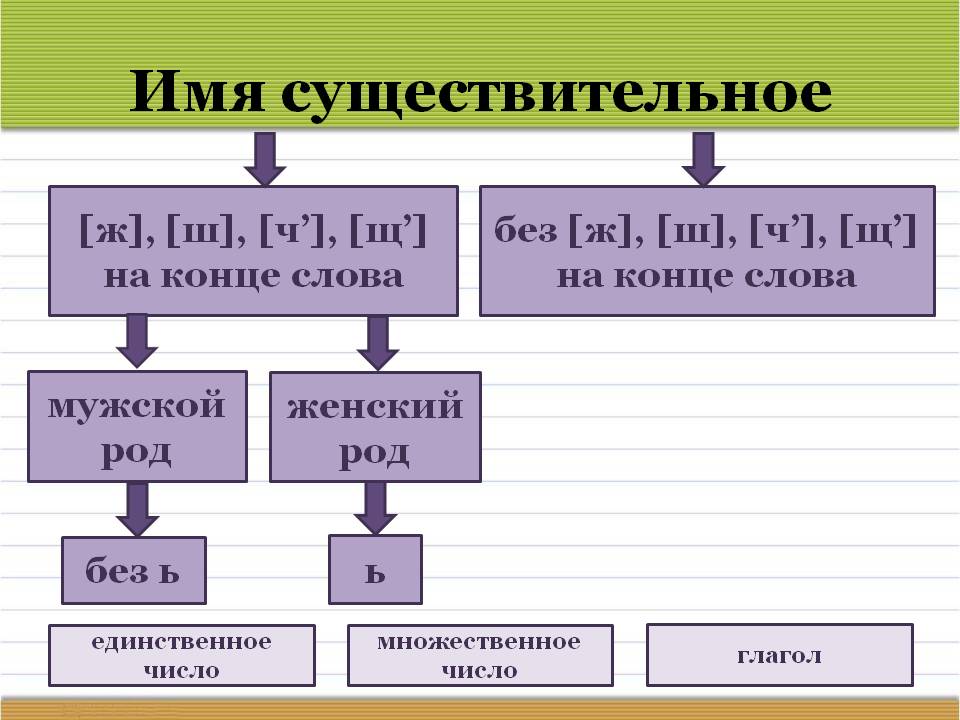
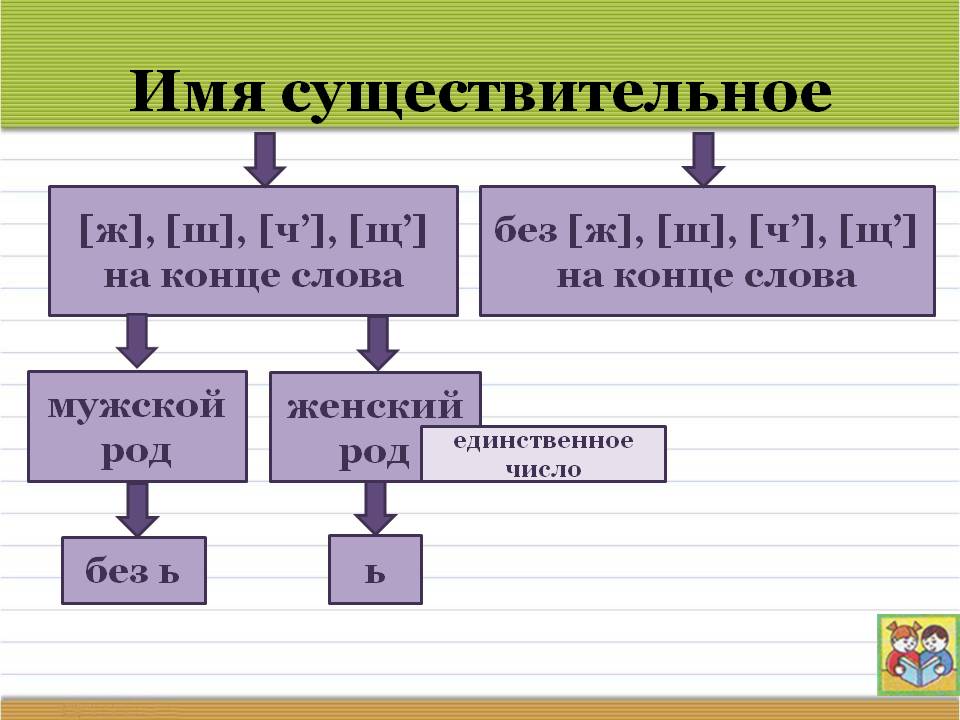
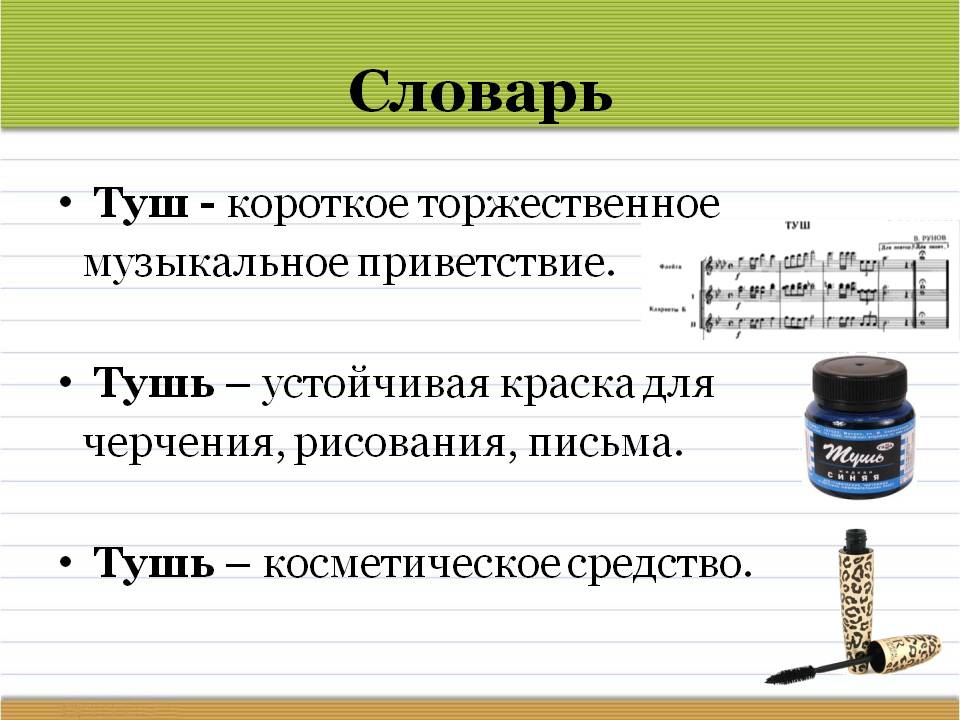
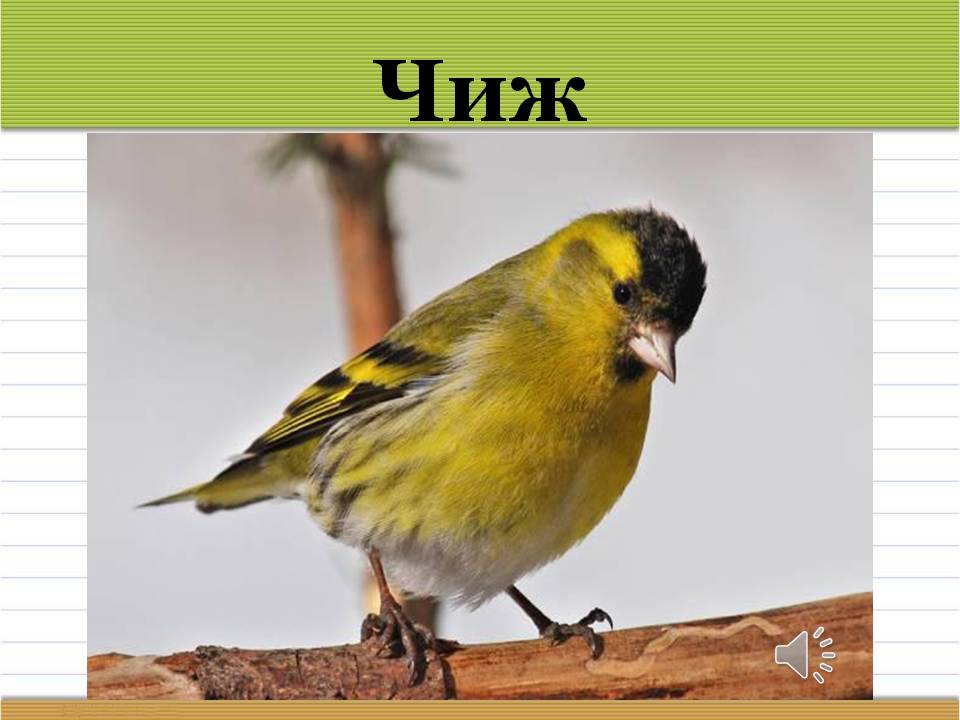
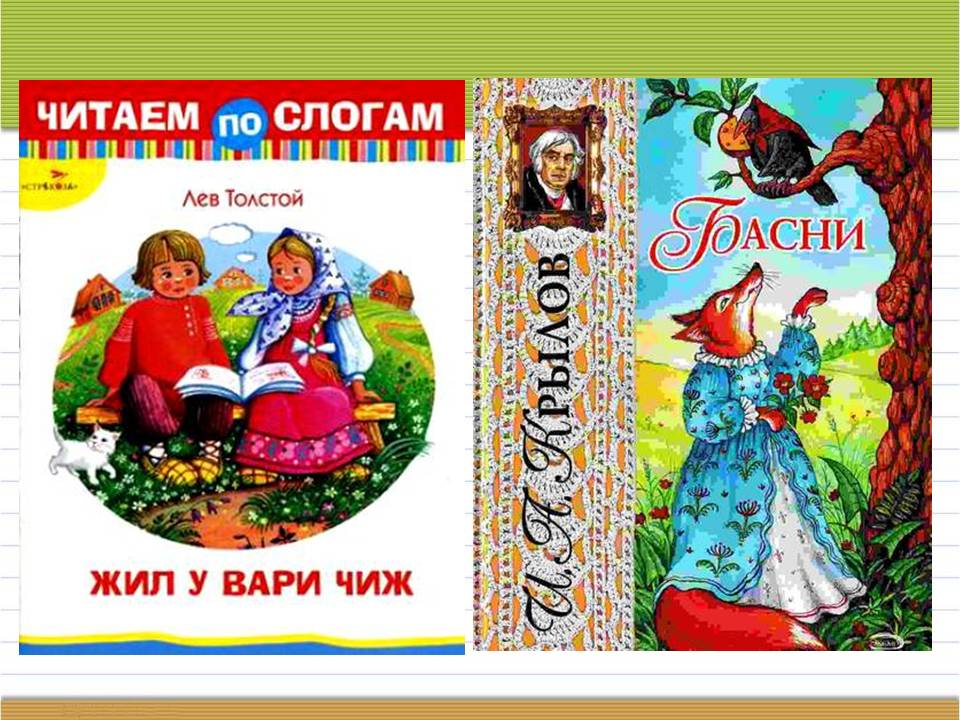
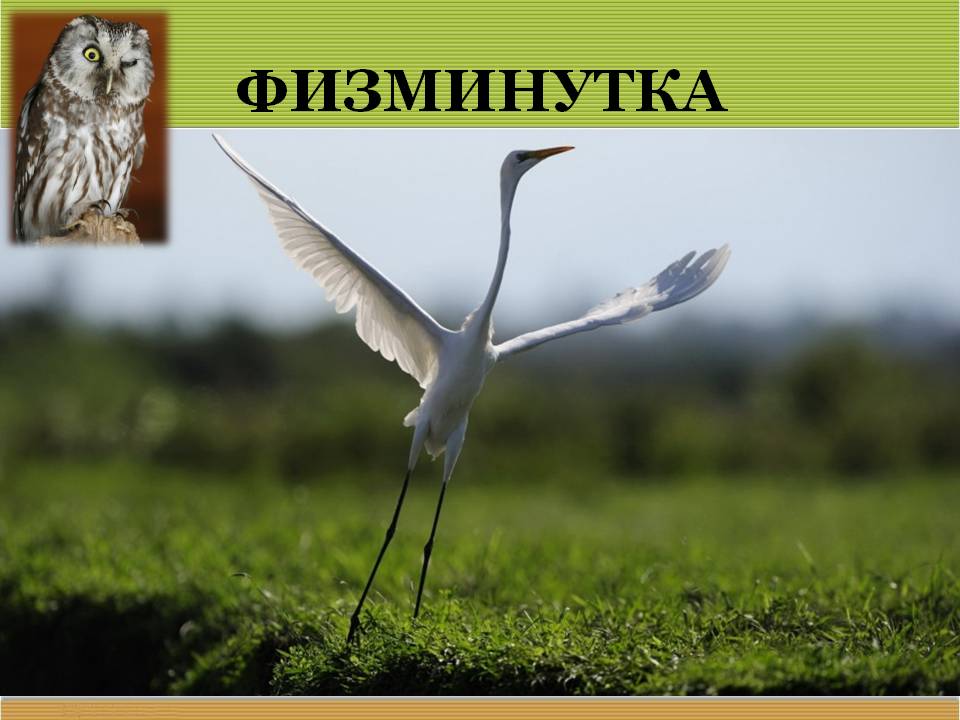




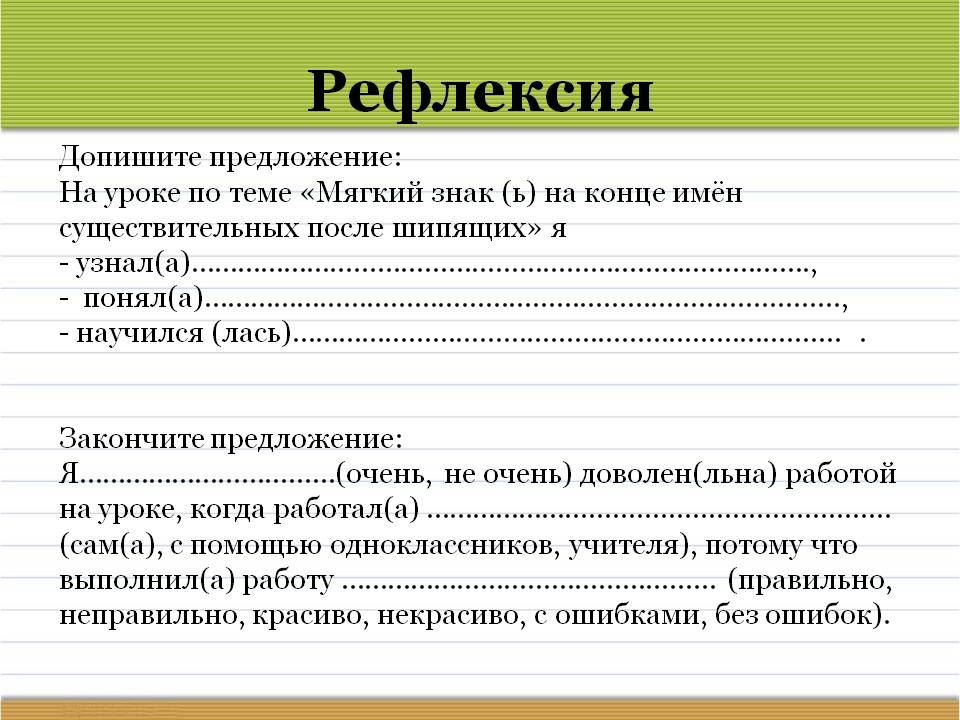

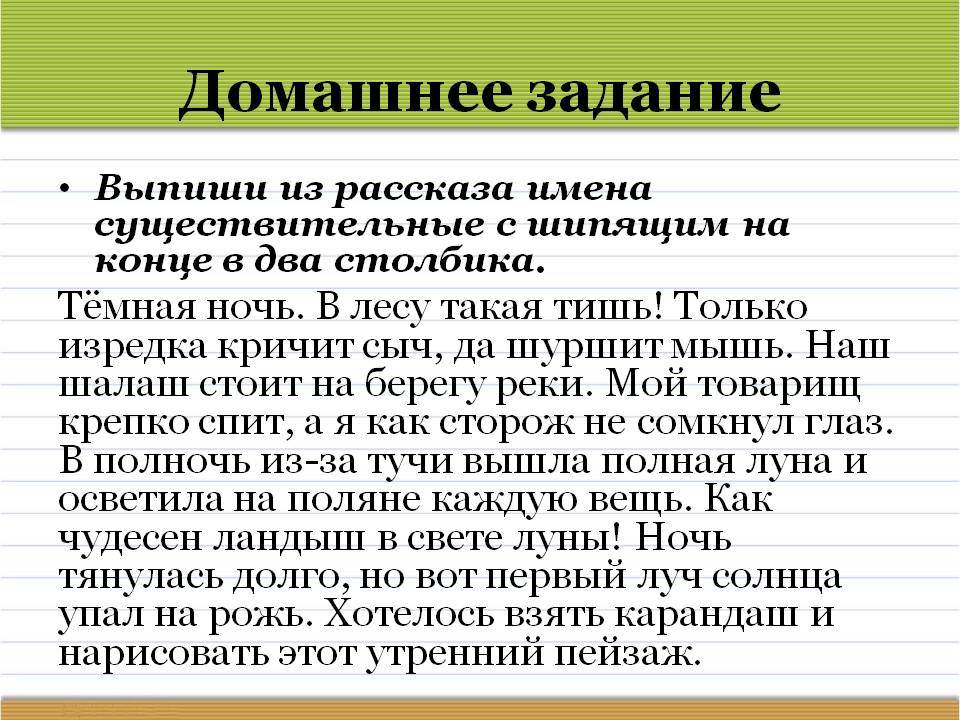
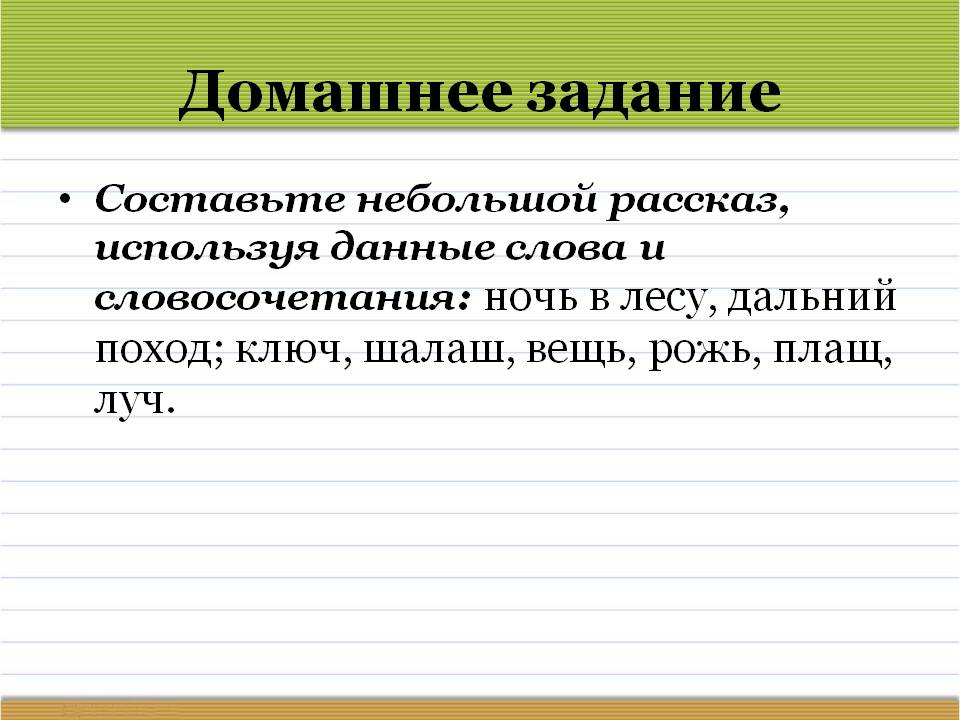
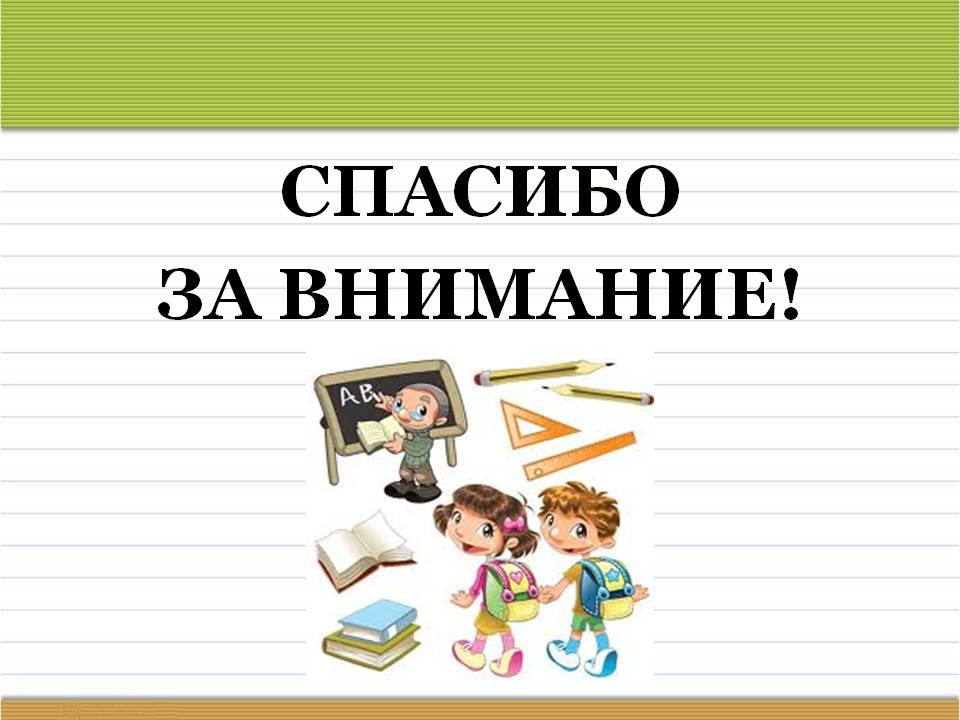 Back forward
Back forward
Attention! The slide preview is for informational purposes only and may not represent the full extent of the presentation. If you are interested this work please download the full version.
UMK "Perspective"
The purpose of the lesson: to introduce students to the spelling of a soft sign at the end of nouns after hissing.
Lesson objectives:
- reveal grammatical function soft sign as an indicator of the feminine singular of a noun by research work students;
- to form the ability to distinguish between masculine and feminine words;
- to educate students in tolerance, respect for the opinions of others, the ability to listen and express their point of view;
- to cultivate independence, creative activity;
- develop spelling vigilance;
- develop thinking, attention, memory.
Planned results:
Personal Outcomes
- understand the importance correct spelling"ь" after hissing at the end of feminine nouns.
Metasubject results:
- Regulatory:
- evaluate the progress and results of the task;
- compare your answers with those of your classmates;
- correct their actions in case of discrepancy between the result and the sample.
- Cognitive:
- general education:
- brain teaser:
- pose and formulate problems, independently create an algorithm of activity in solving problems;
- brain teaser:
- establish causal relationships;
- build logic circuits reasoning;
- setting and solving problems:
- find a way to solve the problem on your own.
- general education:
- Communicative:
- be able to work in pairs;
- listen carefully to each other;
- be able to express their thoughts in accordance with the tasks and conditions of communication.
Subject Results:
- reproduction by one's own the words of the rule, algorithm; performing actions according to the model;
- know how to write feminine nouns with hissing at the end;
- find in the text words with ь after feminine nouns hissing at the end, enrich the speech of children.
Working with information:
- playback, work with educational material;
- search and highlight the necessary information.
DURING THE CLASSES
I. Organizing time. Creating a positive emotional mood
- Hello guys!
A cheerful bell rang.
We are ready to start the lesson.
Let's listen, discuss
And help each other.
- Smile at each other. I hope that the lesson will bring you the joy of a new discovery.
- Open your notebooks, write down the number, class work.
2. A moment of calligraphy
- To find out what letter we will write in a minute of calligraphy, listen to the riddle:
What is the letter, who knows:
Sound does not mean
Can only show
How to read a consonant. (The letter is a soft sign.)
- Write a letter and its compounds, a sentence according to the model.
When writing, pay attention to the height, slant and width of the letters.
Don't forget about proper posture when writing.
yyyyyyyyyyyyyyyyyyyyyyyyyyyyyyyyyyyyyyyyyyyyyyyy
Elk is the largest animal of the deer family in the forest.
What do you know about moose? Tell . (A large forest animal. Eats grass and branches ...)
– Listen Interesting Facts (trained students):
1) Moose have extremely sensitive noses. Wolves are aware of this property, so when attacked, they can sometimes grab the beast by the nose. From severe pain, the moose is paralyzed, and he cannot resist the predator.
2) Moose can reach speeds of up to 56 kilometers per hour.
3) They are excellent swimmers, and can swim at speeds up to 10 kilometers per hour - not bad for a creature with four legs. Moose can even dive and hold their breath for up to 30 seconds.
3. Update basic knowledge and ways of doing things
– Explain the role b sign" in words elk? beast? (Indicates the softness of the previous consonant.)
- What is the role of the soft sign in the word deer? (It is a separating soft sign.)
Name consonant hissing sounds. ([w], [w], [h '], [u '])
– What can you say about them? (Consonants, hissing, [g], [w] are always hard; [h ’], [u’] are always soft.)
Tell me how to determine the gender of a noun.
Is it true that the words mouse", "swift", "owl" are feminine nouns that end in a hissing sound? Justify your opinion.
(Children's answers.)
4. Creation problem situation. Statement of the educational task.
On the desk: Kid, mouse, rook, daughter, raincoat, help.
- Read the words. What can you say about them? (These are nouns. A hissing consonant is heard at the end of words.)
- Write the words in two columns.
Examination:
How were the words distributed? (Words with "ь" at the end after hissing, and words without "ь"; nouns of feminine and masculine gender)
- Why in writing a word mouse there is "b", and in the word baby no "y"? (Similarly: rook - daughter, raincoat - help)
- What is the problem? (Why is “b” written at the end after hissing nouns in some nouns, but not in others?)
- Formulate the topic of the lesson. ("ь" at the end of nouns after hissing.)
– Formulate learning task. (We will learn to write nouns with hissing at the end with "ь" and without "ь".)
- Take the sheets of paper and write down what you would like to learn in the lesson (construct phrase).
5. Discovery of "new" knowledge(solution)
Let's do some research on words using an algorithm. Draw the conclusion in the form of a diagram. Pay attention to the icon, how will you work? (Paired with.)
Research algorithm:
1. Read the word.
2. Determine the part of speech.
3. Determine the gender of nouns.
4. What sounds are heard at the end of a word?
5. Determine which groups words can be divided into?
6. Write down the words, distributing them into groups.
7. What is the difference between spellings of words in groups.
8. Draw a conclusion. Formulate a rule.
9. Compare your output with other pairs.
Words on cards:ball, speech, key, bream, thing, youth, pencil, already, night.
- Compare the results of the study.
- Complete the diagram on the board (The interactive whiteboard has a couple working).

- Open the textbook p. 13, heading "Knots for memory."
Read the rule and compare it with our conclusion.
- Listen to Professor Ivan Ivanovich Samovarov and notice that you heard something new in the rule. (Disk, part 1, 2).
– What did you notice? Let's add a diagram.
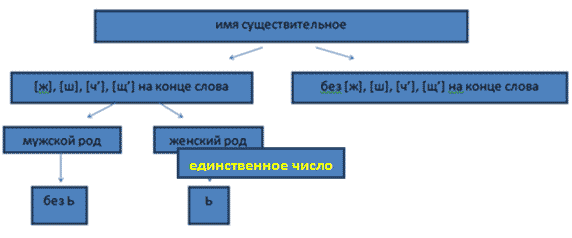
- Tell the rule to each other in pairs, do not forget about an important addition.
- What role did you learn about the soft sign in words? (In feminine nouns, at the end of words after hissing [w], [w], [h ’], [u’] is written “b”, which indicates the feminine gender of the noun in the singular.)
6. Primary fastening. Commented execution of a typical exercise
- Let's complete the task that the Clever Owl offers, but first explain the meaning of the word ink.
Let's go to the dictionary. (One of the students finds a word in explanatory dictionary, is reading.)
On the slide:
Carcass - a short solemn musical greeting.
ink- stable paint for drawing, drawing, writing.
ink- cosmetic.
– Complete the task with commenting in pairs.
(Divide the words into two columns. In the first, transfer those at the end of which a soft sign (s) is written, in the second - those in which the soft sign (s) is not written.
Words: baggage, bitterness, siskin, ink, minced meat, oven, beach, doctor, daughter, cake, trembling.)
- Let's check. (A pair of students at the blackboard distributes words into two columns with comments.)
- What is the meaning of the word ink in the exercise? (Stable paint for drawing, drawing, writing; cosmetic.)
- Think about it, is it possible to argue that the “b” sign denotes the softness of feminine nouns hissing at the end? Justify your opinion.
What rule did you use to complete the task?
- What does the word chizh mean? (Chizh is a bird.)
- What do you know about the sissy?
- Here, listen.
Prepared student:
Chizh is one of the favorite songbirds of man.
The singing of a siskin consists of both its own trills and imitation of other birds (mainly tits). Siskin is found in all forests of Europe and Asia and prefers coniferous and mixed forests. Siskins are migratory birds.
- Writers in their literary works also talk about siskin. Leo Tolstoy has a story "Chizh", and Ivan Andreevich Krylov wrote the fable "Chizh and the Dove".
Fizminutka
- Let `s have some rest. Stand comfortably at the table.
- If you need to write a “b” sign in the word, put your hands on your belt and walk in place, if not, put your hands to the sides.
The teacher says the words: hut, False, rook, wilderness, walrus, watchman, rye, chizh.
- Well done!
– Do you know that a siskin also lives in our city? What do you know about it? (Children's answers.)
- In our city there is a monument called Chizhik-Pyzhik.
Prepared student:
1. The monument to Chizhik-pyzhik on the Fontanka is one of the smallest in the city: its size is only 11 centimeters, and its weight is 5 kilograms. The authors of the sculpture are the architect Vyacheslav Bukhaev and the Georgian director, screenwriter and sculptor Rezo Gabriadze.
2. There is an opinion that the creator of this sculpture called it that because the shape of the students Imperial School jurisprudence with its color resembled the color of siskin, and the fawn because the students wore fawn hats.
3. There is also a popular belief that this statue grants wishes. In order for the wish to come true, you need to hit the siskin with a coin so that after the rebound it remains on the pedestal.
7. Organization independent work with self-examination in class
Now take a card. There are two options on the card. Choose a task according to your abilities, complete it.
(Self-execution. Self-control.)
- Take a sheet of self-control in the envelope and check your work.
Card:
1 option
Replace each phrase with one noun with a hissing sound at the end, write it and determine the gender:
Small items - ...,
strong whirlwind - ...,
bitter taste - ...,
soup with beets and vegetables - ...,
wild birds that are hunted - ...,
small forest songbird - ....
Words for reference: borsch ..., bitterness ..., game ..., trifle ..., tornado ..., siskin ... .
Option 2
Insert a soft sign where necessary (determine the gender of the noun). Match the nouns with the adjectives and write down the phrases.
Garage .., youth .., weaver .., floor .., hedgehog .., already .., borscht .., raincoat .., hoop .., beam .., rich man .., circus performer .., lies. ., doctor .., strongman .., trumpeter .., bitter .. .
Self-control sheet:
1 option
Small items - a trifle (female),
strong whirlwind - tornado (m.r.),
bitter taste - bitterness (female),
soup with beets and vegetables - borscht (zh.r.),
wild birds that are hunted - game (female),
a small forest songbird - siskin (m.r.).
Option 2
Strong garage (m.s.), talented youth (m.s.), skillful weaver (m.s.), last floor (m.s.), troublesome hedgehog (m.s.), fast snake (m.s.). r.), delicious borscht (m. r.), autumn cloak (m. r.), red hoop (m. r.), warm beam (m. r.), generous rich man (m. r.), dexterous circus performer (m.s.), harmful lie (m.s.), kind doctor (m.s.), tall strongman (m.s.), cheerful trumpeter (m.s.), useful bitterness (m.s.) .).)
- Raise your hand those who coped with the task without errors. What helped you?
Who made mistakes? What difficulties did you have? Why?
(If time permits in the lesson for students who completed the task quickly.)
Deformed sentences.
Shore, I, a hut (?), On, set. It was night (?), starry. A beam (?), woke me up in the morning, the sun. I, fishing rod (?) ka, sat down, shore, and threw it on. Bream(?), ruff(?), caught, pike, etc.
7. Summing up the lesson. Reflection
- Remember everything that we did in the lesson and summarize your activities.
– Did you learn anything new?
- What was the rule in class today?
- Give examples.
- What did you repeat?
What tasks were easy for you to complete?
– What was difficult?
– Was the lesson interesting? Useful?
– Do a written self-assessment and self-assessment.
8. Homework
- I offer 3 options to choose from for homework.
Take a card, read the tasks. Is everything clear?
Card:
1 option
Add, if necessary, b.
In each line, there is an “extra” word horizontally. Cross it out and explain your choice.
night siskin arena walrus
landscape crew lily of the valley dich
key rech rye trifle
help drawing goulash Muscovite
midnight royal knife march
shiver reeds things quiet
Option 2
Write out the nouns from the story with a hissing at the end in two columns.
Dark night. It's so quiet in the forest! Only occasionally an owl screams, and a mouse rustles. Our hut is on the river bank. My comrade is fast asleep, and I, as a watchman, have not closed my eyes. Came out from behind the clouds at midnight full moon and illuminated every thing in the clearing. How wonderful is the lily of the valley in the light of the moon! The night dragged on for a long time, but then the first ray of the sun fell on the rye. I wanted to take a pencil and draw this morning landscape.
3 option.
Compose short story using these words and phrases: night in the forest, a long hike; key, hut, thing, rye, cloak, beam.
9. Organized end of the lesson
- Thank you for the lesson! It was a pleasure for me to work with you. I want to give you a poem - a question.
soft sign- a tricky sign.
Don't name him.
It doesn't pronounce
But the word is often asked.
We will always be where we need to be
Insert a soft sign into words?
YES!
- The lesson is over. Goodbye.
1. Fairy tale.
Is always hard letter Sh and Soft Sign.
The Soft Sign has been hopelessly in love with the letter Sh for a long time. It follows it like a shadow, from word to word, but all in vain. The letter W hates letters from which you will never get a sound.
And the Soft Sign is just that. He is timid, shy, does not try to stand out in the line, to take the first place in the word. It is so quiet and inconspicuous that even in control dictations often forget about it.
Other letters, which have to meet closely with the Soft Sign, like these qualities of it. Many of them even soften themselves from his proximity.
Only the letter Ш does not soften, despite all the efforts of the Soft Sign. It is still hard and hisses so hard that the Soft Sign literally loses control. But he cannot help himself, and every time he again stands next to the letter Sh.
The Soft Sign has too soft temper. He can't resist strict laws grammar, which alone controls everything that is written on paper - from a small Comma to the most solid Sign.
I'm doing my best
I want to understand spelling.
But it still evokes
Spelling surprise.
Well, don't cry, stop crying!
The bruise will pass, the doctor told me.
But before the bruise was gone
The soft sign has disappeared from crying!
I'm doing my best
I show diligence
But very often nonetheless.
I am perplexed.
Here in front of you whole line words that end in hissing consonants: trumpeter, sword, cry, shower, goulash, horsetail, borscht;
Stove, speech, bitterness, game, luxury, mouse, night.
The first line is ok. In the second, for some reason, after the hissing there is a soft sign. Why is it here and what does it mean?
Take a closer look: in one case, all nouns are masculine, and in the other - in the feminine.
Here, pointing to the gender of nouns ending in hissing w, w, h, u is the duty of a soft sign.
We pronounce the words knife and rye, ending them with the same hard J. This is the law of our pronunciation. And we write feminine nouns with a soft sign after hissing. Such is the "service" of a soft sign.
2. Add proverbs and underline.
Hurry up - people ... (make you laugh).
Without difficulty ... (you can’t pull a fish out of a pond).
With whom will you lead ... (from that you will type).
What goes around comes around).
The awl in the bag is not ... (hide).
3. Find words with a hiss at the end and explain the spelling.
In the distance the mountain key sparkles,
Escaping from the stone rapids.
Dressed in a veil of clouds
Sleeping peaks of the Caucasus...
A sensitive reed is dozing.
Quiet - deserted around ...
Wind, wind! You are powerful
You drive flocks of clouds.
You excite the blue sea
Everywhere you fly in the open,
Don't be afraid of anyone
Except God alone...
4. Answer the questions.
What is a person who plays the violin called?
What is the name of a person who heals the sick?
Waterproof coat.
Later, dark time of the day.
My cheerful, sonorous ... .
5. At the end of which words is written ь?
Sem ..., help ..., circus performer ..., night ..., brooch ..., rain ..., borscht ..., erysipelas ..., sorrel ..., trumpeter ..., thing ..., game ..., muffled ..., breadcrumbs ..., Muscovite ....
6. Write while pasting the right words with a sizzle at the end.
Ears golden .... My father has been working in a factory for many years. He has a big … work. … - good construction material. Cold ... useful to everyone. Lesnoy ... is included in the Red Book.
(Rye, experience, brick, shower, lily of the valley.)
7. Replace, in one word and write.
A man who plays the trumpet.
A person who performs in a circus.
A very strong person.
A person who plays the violin.
Resident of Moscow.
The place where the cars are parked.
Spiny animal.
Place. Where they swim and sunbathe.
famous museum paintings in St. Petersburg.
A large marine animal with a mustachioed muzzle.
8. Combine these words into pairs so that each pair contains words with the opposite meaning.
Lies, crumb, truth, poverty, luxury, crust, silence, poor man, noise, rich man, old people, power. Youth, weakness.
9. Indicate the word in which the soft sign is missing.
Luggage…, night…, garage…, youth…, shower…. Duesh…, watchman…, brooch…, lie…, violinist…, midnight…, barbel…, cloak…, help…, owl…, key…, trembling…, kalach…, thing…, mouse…, rich….
10. Find the mistake.
Good, midnight, rye, you give.
11. Words for spelling analysis.
Near the groves ..., a ray ... of the sun, harness ... horses, a cunning mouse ..., cut ... a child, at the site of fires ..., light ... a candle, a lot of Sasha ..., a dried cake ..., appoint ... time, bring ... into the light, clumsy ..., bake ... pie, don't cry ..., a lot of children's programs ..., no skis ..., hide ... brick ..., decided to kindle ..., lovely baby ..., sharp sword ..., cut ... cabbage, beautiful daughter ..., minced meat ..., hide ... gift, needed thing ..., involve ... in the game, by the puddles ..., guard ... yard, no tasks ..., small trembling ..., angry owl ..., at the dachas ... lie down ... on the water, underground key ..., designate ... a place, provide ... a family, saw a mouse ..., many schools ..., bake ... kalach ..., treasure island ..., soft plush ..., lie down ... on the grass, save ... honor, five thousand ..., Russian speech ....
